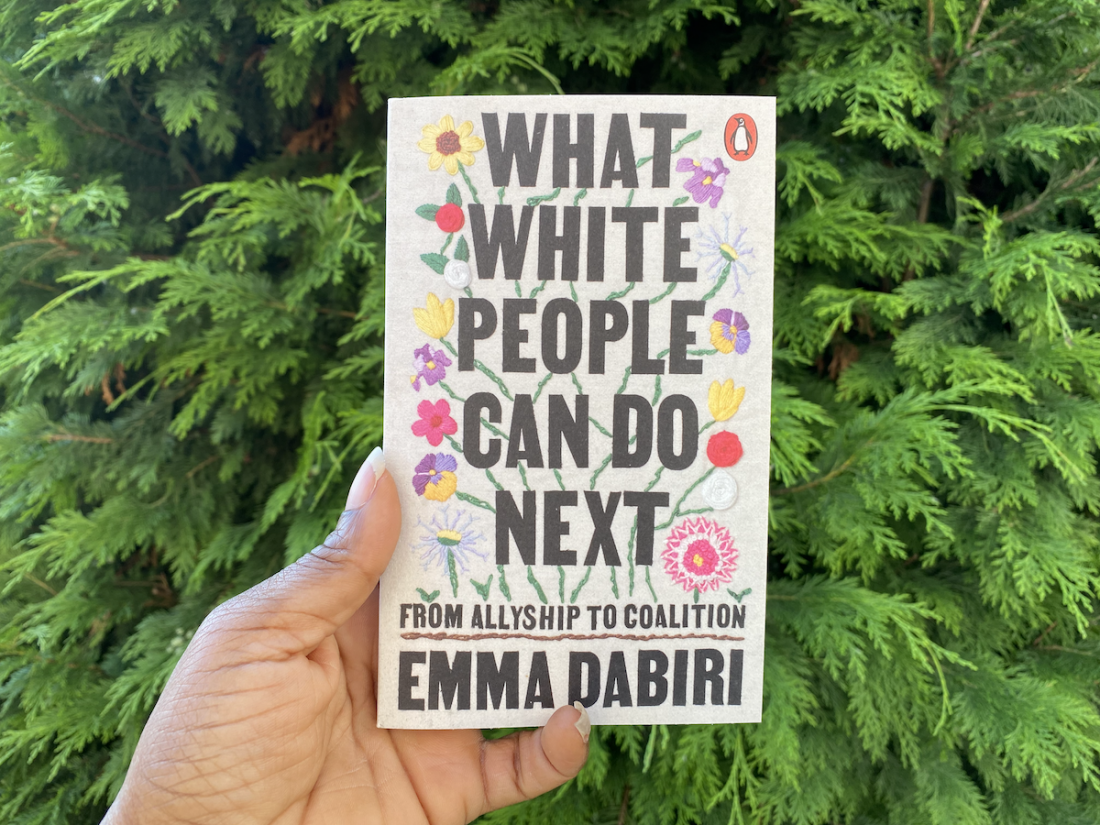Emma Dabiri’s latest book What White People Can Do Next is for everyone and offers the part that is often missing from racial narratives for allies: ‘where we go from here’?
With this book, academic and broadcaster, Emma Dabiri has effectively removed any excuse for white people and would be Black allies to not actively and sustainably tackle the systemic racism disadvantaging the lives of Black people.

She provides a well-researched roadmap through the logistics of unpicking racist systems; challenges readers to interrogate capitalism (in which racism is embedded) and implores us to denounce the white saviourism embedded in the current concept of allyship.
How Emma Dabiri’s Don’t Touch My Hair inspired change at this school
Dabiri’s 2019 debut book, Don’t Touch My Hair examined the truth Black women have known instinctively since childhood – that Black hair is never “just hair”. However What White People Can Do Next is far more conversational and, for those selecting the audio version, is told with Dabiri’s easy Irish lilt, blending heady academic discourse with the blithe and languid delivery of a girls’ chat over a cocktail.
Opening with the context of her work and why she has repeatedly refused to discuss the binary topics of the trendy “anti-racism” debate, Dabiri focuses also on the historical context of reimagining social narratives around race without having the white gaze at the centre.
You And Your Hair book is a 101 masterclass on nurturing Afro hair
Dabiri’s easy weaving of scholarly text with a familiar, relatable mode of delivery, would leave the reader feeling almost silly for not taking those positions as obvious – if not at least – sensible. Added to this is her regular and comical dip into slang or vernacular which again humanizes and almost normalizes what are arguably radical concepts.

Packed full of personal anecdotes, the writer speaks with unabashed candour about growing up in Ireland as one of the only Black people in the country – let alone her school or neighbourhood – and how naked racial abuse made her acutely aware of her Blackness. For this reason, she explains, she left Ireland as a teenager and while she regularly visits, has never returned there to live.
The book will not be [and should not be] a comfortable read for many whose ideas around anti-racism involve shaming white people into gifting their privilege to Black people. Dabiri believes that chastising people about their privilege is not a compelling narrative and nor is it particularly effective. She bemoans the trend of swapping conversation for action or activism, with particular disdain for such performativity in social media spaces like Twitter. She encourages the reader to dismantle the notion of building personal expectations of people based solely on their race and admonishes the woke washing of Black squares in solidarity with the Black Lives Matter movement saying: such visibility doesn’t equate to the underlying politics of the gesture being viable.
View this post on Instagram
Dabiri believes there is a futility to the modern concept of allyship because it is defined as a selfless act which exacerbates division (along the lines of protected characteristics) in the context of charity. This, she says is at the expense of true solidarity, while coalition (a more useful approach, she believes) is defined as radically disparate groups working together in pursuit of common goals. Referencing the political upheaval of segregated America, she referred to those as far more polarizing times in which the actions of coalition, rather than solidarity, were far more effective in achieving common goals.
A forensic deconstruction of how race became a social construct designed specifically to subjugate a particular group had an additional sting to it in Dabiri’s assertion that people should challenge the idea of whiteness in and of itself.

At face value, the book’s title, What White People Can Do Next perhaps suggests that the book is full of scolding, anger and hate-filled ultimatums. But nothing could be further from the truth.
From her suggestion to stop the false equivalency between things like being Irish or having ginger hair and being Black; to her encouragement to read less socially popular authors (both white and Black), Dabiri encourages a dispassionate challenging of long held narratives while promoting an often-overlooked aspect of Black writing: the celebration of Black joy, triumph and emotional complexity. She also refrains from calling people “bad” and rather the products of their socialization – itself baked into historical indoctrination, and finally into law.
Book review: Why I’m No Longer Talking To White People
Who is the book for? What White People Can Do Next is filled with academic rigour which blends seamlessly with modern context and historical parallels ensuring it will easily serve as a “How to” guide for those further along in the racism conversation than those engaged in the basics.
A meaty, but worthwhile read.
What White People Can Do Next: From Allyship to Coalition by Emma Dabiri is published by Penguin. Buy the book here.
This article was written by Katrina Marshall.












